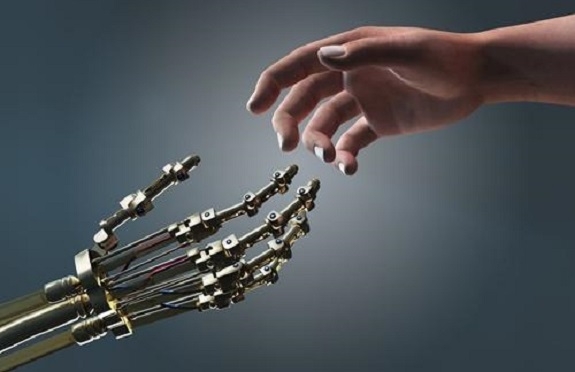Topics
Humans vs AI: Who Wins in the Customer Service Arena?

From self-driving cars to Siri, we hear about and interact with varying types of artificial intelligence everyday. This isn't to say that we necessarily crave autonomous, machine learning-based interactions, but with technology acting as a requirement in today's world, sometimes robots and AI systems provide a much-needed productivity boost or make a specific task easier to complete.
Therefore, it seems like the next logical step in the customer service world that organizations leverage automated systems and AI to help solve tech support problems or clear up consumer complaints. In many ways, this type of business process outsourcing seems like a golden goose. After all, computers don't make mistakes, they calculate more quickly and, most importantly, they cost less in the long term.
"AI-based customer service makes sense in an always-on, self-service culture."
AI isn't too bad
AI-based customer service makes sense in an always-on, self-service culture, and when combined with big data and analytics, computers seem like the best solution to providing consumers high-quality experiences over the phone and Web. This is especially important in reference to BPO, as organizations may struggle to find call center staff members that are not only great that their job, but also won't leave for other positions. Computers solve this problem, and outsourcing service providers can maintain those systems.
Furthermore, as Business 2 Community contributor Todor Kolev explained, AI and other automated services meet bigger demands than human teams. These systems can be constructed perfectly for specific sectors and programmed to meet certain goals, so handling 100 requests at a time just comes down to processing power and electricity. This also means that AI-based customer service solutions can handle requests 24/7 and across a variety of platforms. Not that humans cannot do this, but computers don't suffer from fatigue or have personal lives.
A headache waiting to happen?
Unfortunately, AI and machine learning might not have what it takes to provide high-quality customer service and support, and, in that way, humans might be better than computers.
Automatic driving and asking Siri for the weather may reduce the amount of manual input required of us and they might make humans more capable of completing tasks (think Google predicting search queries), yet when these AIs make mistakes, we become frustrated. No one wants to ask for something twice, and, typically, with modern expectations for speed, repeating interactions is a waste of time. With respect to customer service, this can cause major headaches for consumers, and that isn't the only reason why many individuals prefer human customer service over AI-based support systems.
In the depths of the valley
The problem, and perhaps the reason why customer service will always remain human, lies in the uncanny valley. Contributing to Harvard Business Review, Rafe Sagarin, professor at the University of Arizona, explained the uncanny valley - a phrase first coined in the 1970s - as an area on the spectrum of humanity and its aspects where human-likeness has gotten so high that it just feels fake. In other words, robots that look like robots and act like robots are OK with humans, while AIs that sound just like people can be quite disturbing or uncomfortable. Sagarin argued that "human agency" - the ability to think and act - is missing from AI-based customer service solutions, and therefore, any attempts at providing a great customer experience with AI-based support will fall right into the uncanny valley. Then, consumers will just be upset with brands, not the robots.
Instead, especially given the modern demand for high-quality brand interactions, businesses should be injecting extra human agency into customer service teams.
"Emotional intelligence separates humans from machines."
"Human agency is a special thing," Sagarin asserted. "The human mind is an empathetic, problem-solving agent. Without any training, or corporate policies, people will try desperately to make connections with people and help solve their problems."
Others industry experts think that emotional intelligence separates humans from machines. This is similar to Sagarin's belief. Business 2 Community contributor Scott Kolman wrote that without the capability to see themselves in customers' shoes, service representatives cannot provide the best experience possible. A speedy response to a query means nothing if the person delivering that solution doesn't understand why consumers want a quick answer to begin with.
Why not both?
AI-based systems have their benefits, and so do human customer support representatives. Maybe this means a combination of human emotion and the quick processing power of computers is the best solution for businesses that want to outsource their customer service and call centers. Real teams armed with analytics tools and CRM software fits the bill when it comes to great experiences. This approach takes the best of both sides, and in this regard, no brands are fooling customers into believing they're talking to humans.
Machine learning and AI is a step in the right direction for customer services and call center support, but when trying to meet human demands, a bit of humanity is required. After all, we've gotten this far simply using technology as support, so why not keep going in that direction?

